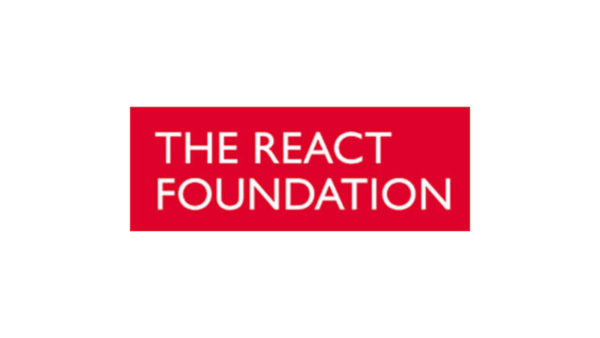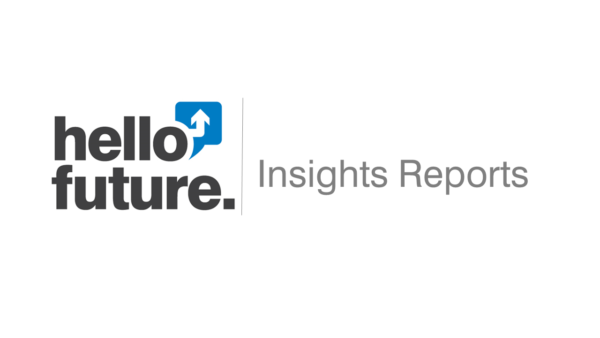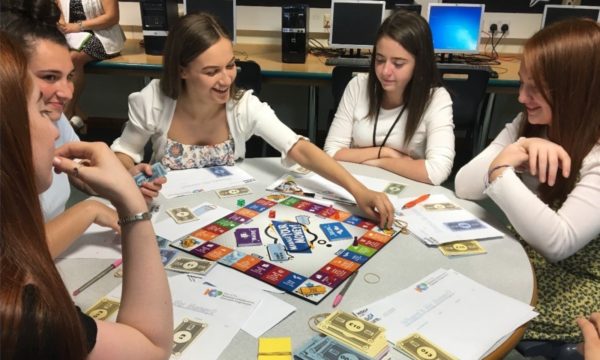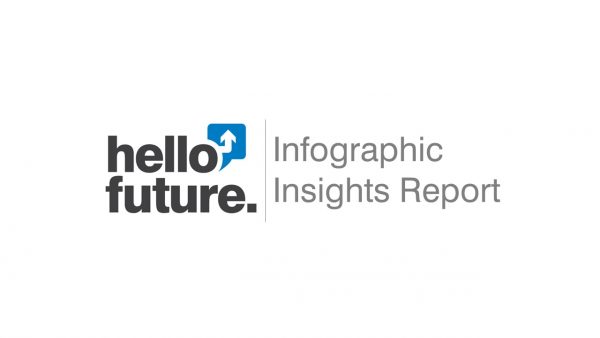At Hello Future, we are committed to ensuring our programme of intervention activities can be measured, and that the impact we have on the Cumbrian learners can be evaluated. Since 2017, we have been contributing to Higher Education evaluation outreach both in Cumbria and at a national level.
This section of our website provides more information about ‘what we do’ and ‘why’, demonstrates our impact on the lives of Cumbrian learners, shares our expert knowledge of evaluating outreach to upskill the sector and houses our library of commissioned research and evaluation studies – all of which contributes to understanding the needs of learners in Cumbria.
We are happy for the reports, briefing papers, tool kits and templates to be downloaded, used and shared as widely as possible.
We are committed to understanding the measurable impact we have on the young people we have been established to support.
Meeting our clearly defined aims by fulfilling our objectives is central to our work. We have specific objectives for our Targeted Outreach Programme, The Outreach Hub and Evaluation. To meet our objectives we deliver an outreach programme made up of intervention activities that take various formats.
Intervention formats are the mechanism through which an outreach activity is delivered such as mentoring, community outreach and workshops. Intervention activity describes the content of the outreach and the themes explored within.
To ensure we have measurable impact we use a Theory of Change. This is a visual representation of our programme’s inputs, activities, outputs, outcomes and underlying mechanisms.
Its main function is to enable us to understand how the different parts of our programme fit together to ensure we meet our objectives. We also use it as a benchmark through which to ask ourselves questions to ensure our target learners are receiving impactful outreach interventions at the right time in their educational journey.
Our whole programme Progression Framework is an accessible guide. It’s for our central team, careers leaders and teachers to facilitate learner access to a sustained programme of Higher Education and Apprenticeship outreach across the county.
Its development is a collaborative process, shaped by the whole team and updated each July (ahead of the start of the academic year) in response to our learning about ‘what works’ in the previous year.

From 2017 to 2019, the REACT Foundation hosted a range of activities for Year 10 and 11 learners to inspire further study in maths and science subjects through a variety of different routes. This project involved Whitehaven Academy and Netherall School in West Cumbria. Read more about it here.
Link
This report provides detail of the process and findings of mapping higher education outreach in Cumbria and covers outreach delivered by Hello Future partner organisation, along with the outreach needs and preferences of Cumbrian schools and colleges. This mapping exercise was performed as a key function of the Outreach Hub element of the Hello Future programme.
Link
Developed in with our partner The University of Cumbria, the projects aim was to bring to life the concept of ‘life skills’ by developing and delivering a highly interactive session that would prepare learners for independent living and support the transition into work-based learning or university. Read more about this project here.
Link
An engaging visual report of our more in-depth commissioned research. This report builds on our work exploring barriers to WP by taking a new approach to develop an asset-based approach to WP. Assets can be understood as not simply “things” which exist, but rather mechanisms for improving capabilities which are gated at particular points to either encourage or block HE access.
Link
An engaging visual report of our more in-depth commissioned research. This report draws insights from young white males from disadvantaged backgrounds to explore how this impacts their intentions and ambitions to progress to Higher Education. This would be useful for other widening participation practitioners to that they can help encourage young males to meet their full academic potential.
Link
An engaging visual report of our more in-depth commissioned research. This outlines the roles that Voluntary and Community Organisations (VCOs) play in shaping young people’s decisions regarding higher education. This could be useful for Community Groups, Universities and other FE/HE providers to understand how collaborative working can benefit young people’s decision-making.
Link
An engaging visual report of our more in-depth commissioned research. This report explores the difficulties of widening participation in a county like Cumbria. This would be beneficial for others that work with young people in Cumbria or those delivering outreach in a rural location to develop an in depth understanding of how the rural and coastal nature of a county affects the context of widening participation.
Link
An engaging visual report of our more in-depth commissioned research. This report explores the HE knowledge, attitudes, aspirations and intentions held by young people in Cumbria as Hello Future started delivering outreach in 2018.
Link
An engaging visual report of our more in-depth commissioned research. This outlines the successes of Hello Future in terms of increasing HE aspirations, attitudes, knowledge and intentions. The report makes recommendations for improvements to outreach in Cumbria which will be useful to Hello Future and its partners.
Link
This report provides detail of the process and findings of mapping higher education outreach in Cumbria and covers outreach delivered by Hello Future partner organisation, along with the outreach needs and preferences of Cumbrian schools and colleges. This mapping exercise was performed as a key function of the Outreach Hub element of the Hello Future programme.
LinkNotifications